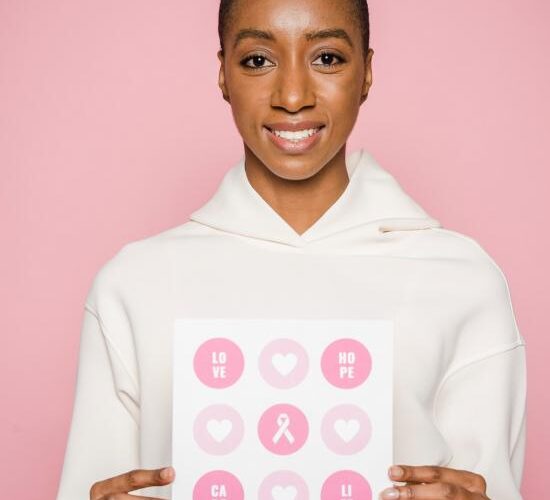
The 411 on BRCA – Know Your Breast Cancer Risk
Hereditary Breast and Ovarian Cancer
About 5% to 10% of breast and 10% to 15% of ovarian cancers are hereditary. Hereditary cancer means cancer runs in your family, and could be caused by a change in certain genes that you inherited from your mother or father.
Genes act as instructions and contain information to build and maintain cells in the body. Humans inherit one set of genes from their mother and one set of genes from their father.
Genes are made up of DNA. DNA tells the body what traits will be passed on from parents to children, such as blood type, hair color, eye color, and risks of getting certain diseases.
What Is BRCA?
The name “BRCA” is an abbreviation for “BReast CAncer gene.” BRCA1 and BRCA2 are two different genes that have been found to impact a person’s chances of developing breast cancer.
Every human has both the BRCA1 and BRCA2 genes. Despite what their names might suggest, BRCA genes do not cause breast cancer. In fact, these genes normally play a big role in preventing breast cancer. They help repair DNA breaks that can lead to cancer and the uncontrolled growth of tumors. Because of this, the BRCA genes are known as tumor suppressor genes.
However, in some people these tumor suppression genes do not work properly. When a gene becomes altered or broken, it doesn’t function correctly. This is called a gene mutation.
BRCA Mutations
All women have BRCA1 and BRCA2 genes, but only some women have mutations in those genes. About 1 in every 500 women in the United States has a mutation in either her BRCA1 or BRCA2 gene. If either your mother or your father has a BRCA1 or BRCA2 gene mutation, you have a 50% chance of having the same gene mutation.
When a BRCA gene is mutated, it may no longer be effective at repairing broken DNA and helping to prevent breast cancer. Because of this, people with a BRCA gene mutation are more likely to develop breast cancer, and more likely to develop cancer at a younger age. The carrier of the mutated gene can also pass a gene mutation down to his or her offspring.
Some groups are at a higher risk for a BRCA gene mutation than others, including women with Ashkenazi Jewish heritage.
Why BRCA Gene Mutations Matter
Not every woman who has a BRCA1 or BRCA2 gene mutation will get breast or ovarian cancer, but having a gene mutation puts you at an increased risk for these cancers.
* About 50 out of 100 women with a BRCA1 or BRCA2 gene mutation will get breast cancer by the time they turn 70 years old, compared to only 7 out of 100 women in the general United States population.
* About 30 out of 100 women with a BRCA1 or BRCA2 gene mutation will get ovarian cancer by the time they turn 70 years old, compared to fewer than 1 out of 100 women in the general U.S. population.
If you have a family history of breast cancer or inherited changes in your BRCA1 and BRCA2 genes, you may have a higher breast cancer risk. Talk to your doctor about these ways of reducing your risk—
* Surgery to reduce your risk of breast cancer
—
* Prophylactic (preventive) mastectomy (removal of breast tissue).
* Prophylactic (preventive) salpingo-oophorectomy (removal of the ovaries and fallopian tubes).
* Antiestrogens or other medicines that block or decrease estrogen in your body.
It is important that you know your family history and talk to your doctor about screening and other ways you can lower your risk. For more information about breast cancer prevention, visit Breast Cancer (PDQ): Prevention.
Know Your Risk

If you know your genetic risk, you have options to prevent cancer. Our partner JScreen offers comprehensive, at-home testing on saliva for BRCA and 60 other cancer genes so you can be proactive about reducing your risk and catching cancer early. Click here to to get your test today. Get FREE at-home screening the week of October 18, 2021 with coupon code CancerGENFreeScreen.
________________
Sources







